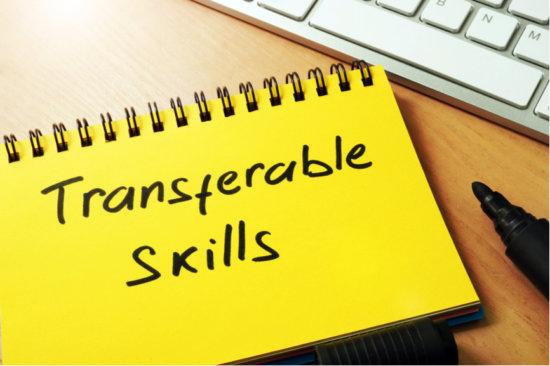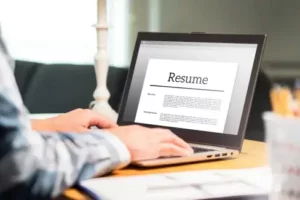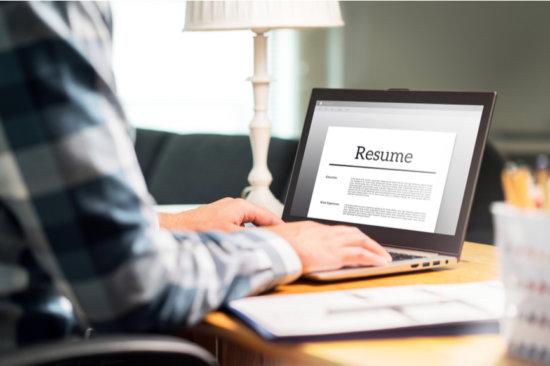Interpersonal Skills: Meaning and 70+ Examples
Adding interpersonal skills to a resume can help you win a job because they bring workplace harmony and improve productivity. Here, we cover the top 10 interpersonal skills for resumes and give 70+ examples you can use. Plus, we provide bonus tips on how to improve your interpersonal skills.
Hired By:*


What are interpersonal skills?
Interpersonal skills are a type of soft skill related to communication. They’re also known as “emotional intelligence,” “people” or “social skills” because they’re how we understand, relate and interact with others.
Why are interpersonal skills important?
Interpersonal skills are critical to getting along with others and having meaningful connections; they determine the quality of every human relationship we have.
Furthermore, interpersonal skills are crucial to employability and excelling at work. Employers want people who can interact, build meaningful relationships and achieve results as a team player.
So, in a job hunt, you must list some interpersonal skills that describe your work approach because they’re both necessary to get hired and succeed! Employers need to know that you excel at what you do and that you get along with coworkers and clients.
Top 10 interpersonal skills to add to your resume
Here we’ll outline the top 10 interpersonal skills on resumes, plus give examples of related abilities:
1Communication
The biggest interpersonal skill is communicating effectively. It applies to every type of job because you always have to interact with others, whether it’s your boss, co-workers or customers. Your ability to speak well, express ideas or write clearly is central to getting along with others.
Examples of communication skills: writing, Zoom meetings, emails, social media, verbal communication, public speaking and telephone etiquette
2Negotiation
A crafty negotiator can persuade, influence and please others to create win-win solutions. Regardless of profession, being able to negotiate desired outcomes is invaluable. To be a good negotiator, you must be a keen listener and problem-solver.
Examples of negotiation skills: dealmaking, diplomacy, persuasion, product sourcing, high-pressure sales, price haggling, conflict resolution and joint business partnerships
3Listening
Being a good listener requires discipline and practice, but it benefits your overall communication skills. Studies show that 80% of what people know comes from listening. Careful listening can prevent mistakes, build trust and help identify customer needs. Employers want to hire people who are attentive and do as instructed.
Examples of listening skills: following directions, dictation, applying feedback, monitoring data, survey analysis and taking meeting notes
4Positive attitude
Harvard researchers have found that happiness can be contagious. That’s why it benefits employers to hire job seekers who advertise their positivity. Being positive helps you manage stress, build trust and foster an upbeat, blissful workplace.
Examples of positive attitude skills: friendly demeanor, outgoing personality, team spirit, perseverance, humility, grace under pressure and self-motivation
5Empathy
Empathy is the ability to understand the emotions, mental state or experiences of others. Being empathetic in the workplace makes you thoughtful and considerate of your colleagues. It can also help businesses better identify and understand the needs of their clients or product users.
Examples of empathy skills: compassion, open-mindedness, cultural competency, UX, trust-building, active listening and interpersonal understanding
6Adaptability
Everything changes, so being adaptable or open to feedback is a huge asset in life and your career. How you adjust to situations and apply feedback is crucial because employers want to know you’re up for every fresh challenge. It’s beneficial to show that you can handle new tasks and thrive.
Examples of adaptability skills: flexibility, multitasking, grace under pressure, project enhancement, trend awareness and business agility
7Reliability
Being reliable at work means that an employer can count on you. It goes beyond just showing up for work on time; it’s about honesty, trustworthiness and consistent results. Try to convince employers that even your “off day” is productive.
Examples of reliability skills: consistency, punctuality, quality-focused, meeting deadlines, personal responsibility, passion or dedication
8Conflict resolution
Identifying problems and developing proactive solutions is the core of conflict resolution. It’s valuable for positions across many job sectors, especially management or team-leadership roles.
Examples of conflict resolution skills: engaged listening, conflict identification, judgment, creative problem-solving, multi-prong approaches and interpersonal negotiation
9Leadership
Leadership skills show your vision and self-confidence and help you stand out even if you’re not seeking a management role. Leaders require sharp critical thinking skills, fairness and the ability to motivate. Hiring managers appreciate candidates who can elicit enthusiasm, guide by example and achieve results.
Examples of leadership skills: team building, task delegation, goal setting, executing vision, giving feedback, mentorship, motivation and personnel management
10Relationship building
Your ability to create healthy and helpful relationships with co-workers and customers is a tremendous asset to any organization. It enhances productivity, cultivates trust and can directly impact the business’s success by boosting team spirit.
Examples of relationship-building skills: networking, client growth, activity planning, interpersonal connection, customer rapport and business partnerships
Still struggling to choose the right interpersonal skills for your resume?
There are hundreds more skills in our Resume Builder!
Our builder is automated, so it’s like having an expert guide you in writing your resume –– it will suggest specific skills to include on your resume based on the job to which you’re applying.
It takes the guesswork out of resume writing and is an easy way to target your resume to the job of your dreams!
How to showcase interpersonal skills in your resume
You must add interpersonal skills to your resume and cover letter, especially those listed in a job description. We’ll explain how to do it in both. First, let’s discuss how to showcase interpersonal skills in your resume.
Before you write, review the job post or ad and pay close attention to the interpersonal skills cited.
Here’s an example of interpersonal skills highlighted on the job post for a digital marketing manager:
- Build relationships with influencers, editors, stylists and publicists.
- Make monthly report to leadership on marketing data and strategy goals.
- Collaborate on cross-functional marketing campaigns (email, social media, in-person events and affiliate partnerships).
- Brainstorm and plan new product and seasonal marketing materials
- Synchronize with the branding team on weekly and monthly recaps.
- Adhere to professional brand written and digital communication standards.
- Influence and negotiate with internal and external partners.
- Self-start marketing initiatives and take accountability for cost-benefit risks.
Once you’ve identified the primary interpersonal skills the employer wants, it’s just a matter of echoing them back in your resume!
There are three main places to showcase interpersonal skills in your resume:
Located at the top of your resume, a summary should include two to three sentences that explain why you’re a top candidate for the job.
If the job requires a high degree of personal interaction, you must mention some of the top interpersonal skills you possess here.
Interpersonal skills professional summary example:
“Dynamic motivational speaker with a 12+ year career of delivering transformational speeches to large audiences. My skills in multimedia presentations, team-building events and individual coaching have contributed to my reputation as a corporate efficiency thought leader.”
Write a strong skills section to prove your qualifications for the job. Target six to eight total skills that align with the job description.
Your skills selection should be an even mixture of interpersonal (soft) and hard skills.
Interpersonal skills are “soft skills” because they’re tricky to measure, demonstrate or quantify. “Teamwork” or “positive attitude” are examples of soft interpersonal skills that are difficult to prove or show.
Hard or “technical skills,” by contrast, are much easier to prove, measure or demonstrate. Retail, languages or computer skills are good examples of hard skills.
This difference matters because you should include a mixture of both hard and interpersonal skills on your resume.
You should also pepper your work experience section with interpersonal skills listed in the job description that apply to you.
For instance, if these are the skills mentioned in the job post:
- Negotiation
- Written communication
- Relationship building
- Leadership
You could include those skills as action verbs in a bulleted list in your work experience section, like so:
- Negotiated key international contracts with worldwide airlines, resulting in annual revenue of $11 million.
- Wrote new quarterly marketing campaigns designed to pitch new products, delivering a 30 percent increase in online sales.
- Built relationships with the press, mayors, congressional delegates and community leaders in the tri-state area to research housing needs.
- Ledand trained 50+ new hires a month.
Find these interpersonal skills on resume samples helpful? We have a vast library of resume examples! You can see how other competing candidates market their interpersonal skills for jobs; it will help give you an edge.
PRO TIP
Optimizing your resume with keywords found in the job description increases your chances of passing an applicant tracking system (ATS). This software collects and sorts through resumes, looking for keywords that match the job description and rejects those that don’t meet requirements.
How to use interpersonal skills in your cover letter
Your cover letter is proof of your written communication skills, so pay attention to any specific instructions and job requirements mentioned in the post! Identify the top interpersonal skills needed for the job to which you’re applying.
For instance, if the job post mentions a need for social media skills, show examples of how you have organically increased online traffic and following.
Check out this example of how to add interpersonal skills to a cover letter:
“My ability to empathize with users and identify trends helps me create social media content that users find clickable and useful. As a problem-solver, I analyzed the success of our previous Facebook posts topics, employed a strategy identifying user pain points that increased our user engagement by 17% and almost doubled the number of post shares.”
Your cover letter is also a good place to mention your transferable skills. For instance, explain how the customer service skills you developed working as a bartender make you good at rapport-building as a sales representative.
Nervous about writing a cover letter? Create a top-notch, professional cover letter in just a few minutes with the help of our Cover Letter Generator.
It’s a digital tool that breaks down the writing process into three easy steps:
1. Choose a template.
Our builder offers a variety of 30+ eye-catching cover letter template styles from which to choose.
2. Enter your information.
Upload an existing cover letter or simply answer the builder’s prompts about your job title and experience; a letter will be auto-generated for you!
3. Save and send!
Once the builder has helped you write and spell check your grammar, you can save it in DOCX, PDF, JPG or SVG file formats.
In just 15 minutes, you will have a professional and effective cover letter tailored to the job to which you’re applying!
Tips to improve your interpersonal skills
Improving your interpersonal skills will enrich all your relationships with friends, family and co-workers.
You can take your social skills to the next level with these daily habits:
Be thankful.
Practicing gratitude improves your overall happiness by keeping you focused on the joy of life. It’s easy to start: Express gratitude to others for their actions. Everyone likes hearing “well done,” “great job” or “thank you” more often. Another trick: Keep a daily gratitude journal to write down all the things for which you’re thankful.
Feel for others.
Empathy and compassion will improve how you get along with people exponentially. Show thoughtfulness and listen to people with focus and respect. Look for someone overwhelmed or burned out and offer a helping hand. Being compassionate builds stronger relationships and real human connections.
Keep a positive attitude.
Whenever you drift into negative thinking, try to catch yourself and stop. Remember that every cloud has a silver lining! Life is easier if you keep calm, learn from mistakes and turn setbacks into opportunities! Meditation and breathing exercises are great ways to channel your inner light and positive energy.
Enhance your communication.
There are countless books, video courses and seminars on how to improve your communication skills. One easy way is to watch free online TED Talks on the subject. It would help if you got more focused on the type(s) of communication you’d like to improve, whether it’s emails, presentations, social media, storytelling or day-to-day conversation.
Volunteer for a club, group or cause.
The most direct way to develop your interpersonal skills is to spend more time with people! Dedicating time to the service of others can help you improve your compassion, listening and empathy skills in a huge way. People are very thankful for volunteers, so this is a low-stress social environment to learn, practice and improve your social skills. There are lots of places to volunteer, like hospitals, soup kitchens and senior housing.
Key takeaways
Here are the main things to remember about interpersonal skills:
- Interpersonal skills refer to how we interact and communicate with others, whether at work or in daily life.
- There are different types of interpersonal skills, and every job requires specific social strengths.
- You can feature interpersonal skills in the following resume sections: your professional summary, work experience and dedicated skills section.
- The best place to feature skills in your cover letter is the first or second body paragraph(s).
- You can develop interpersonal skills if they feel lacking. It’s just a matter of focus and daily practice!
You can see how well your interpersonal skills fit a particular job by running your finished document through our Resume Check. Just upload your resume to have it checked for its completeness and strength!
Otherwise, if you want to create a fresh document from scratch, there’s no faster way than with our Resume Builder.
Since it walks you through each resume section step-by-step and suggests pre-written content, your resume can be ready in under fifteen minutes!
How We Reviewed This Article
Over the past 15 years, we’ve helped more than 10 million job seekers build stronger cover letters, discover their career paths, interview confidently, and boost their chances of finding the right job faster. Review our Editorial Policy to learn more about our process.













